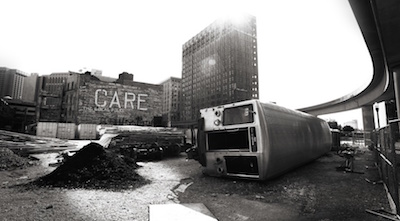Natural Hazards / Climate Change Adaption
It is increasingly recognised that disaster risk and threats to human security cannot be reduced by focussing solely on the hazards. Societies will have to adapt to live with changing environmental conditions. Therefore, they need to build resilience by reducing vulnerabilities to natural hazards.

Adaptation is especially important in developing countries since those countries are predicted to bear the brunt of the effects of climate change. It is recognised that the capacity and potential for humans to adapt is unevenly distributed across different regions and populations, and developing countries generally have less capacity to adapt. Therefore, adaptation requires the situational assessment of sensitivity and vulnerability to environmental impacts.
Adaptation can mitigate the adverse impacts of climate change, but it will incur costs and will not prevent all damages. Extremes, variability, and rates of change are all key features in addressing vulnerability and adaptation to climate change, not simply changes in average climate conditions. Planned adaptation can supplement autonomous adaptation, though there are more options and greater possibility for offering incentives in the case of adaptation of human systems than in the case of adaptation to protect natural systems
Resolve-Network has Specialist Associates with a scientific, public policy or emergency response and recovery background who are experienced in working on adaption projects and initiatives at a local or national scale. By bringing together a range of academics, public policy specialist and crisis managers, Resolve-Network can work with clients to better understand risk and identify the most appropriate risk management strategies.




